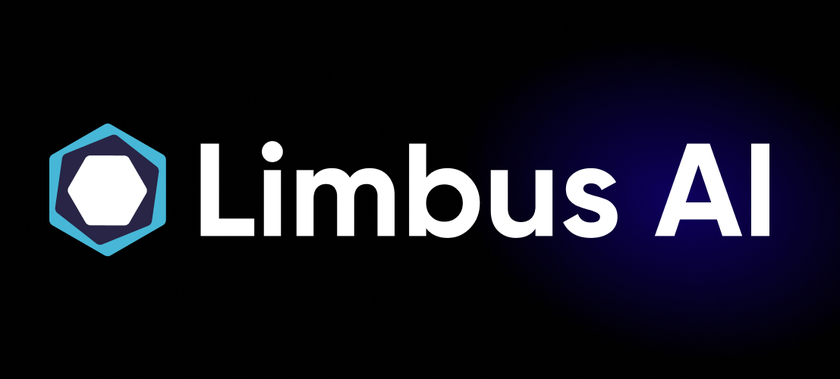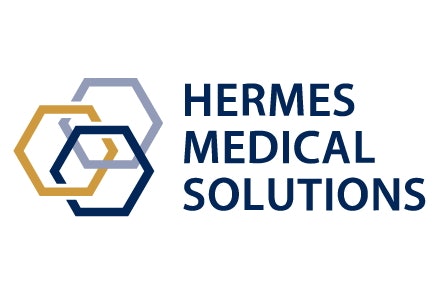Top 10 Radiology Tools for 2025
Top 10 Radiology Tools for 2025
Healthcare providers working with Radiology tools face increasing demands for efficiency and accuracy in their daily work. These software solutions help address specific challenges by automating routine tasks, providing decision support, and improving workflow organization.
The following list includes established solutions that healthcare professionals are currently using to improve their practice. Each tool offers different features and pricing models to meet various organizational needs.

1. Limbus Contour
Summary: Limbus Contour offers automated contouring for radiation therapy, significantly reducing the time required for manual contouring of organs at risk (OARs) and clinical target volumes (CTVs). The software operates entirely on local workstations, eliminating the need for cloud transfers and ensuring patient data remains secure. With its extensive library of clinically validated anatomical structures, Limbus Contour integrates seamlessly into existing treatment planning systems, supporting a wide range of platforms without the need for specialized hardware.

2. DLCExpert
Summary: DLCExpert automates the delineation and contouring of organs at risk (OARs) in radiation oncology, leveraging deep learning technology to enhance accuracy and consistency. This tool integrates into existing clinical workflows, offering a library of structures for various cancer types including head and neck, thorax, breast, and prostate. It aims to save time on manual contouring tasks, allowing clinicians to focus on complex cases and improve patient outcomes.

3. GBS™ Suite
Summary: The GBS™ Suite by MVision AI encompasses Contour+, Verify, and Guide, three integrated tools designed to enhance radiotherapy planning and execution. Contour+ automates the delineation of organs-at-risk and lymph node areas, Verify provides a platform for contour assessment, and Guide offers a training environment for guideline adherence and contouring proficiency. This suite streamlines the treatment planning process, ensuring high-quality, guideline-compliant contours and improving efficiency in radiotherapy workflows.
4. WRDensity
Summary: WRDensity leverages artificial intelligence to provide a more consistent assessment of breast density during mammography screenings. It is designed to integrate seamlessly with RIS/PACS systems and has been trained on over 600,000 images from the Mallinckrodt Institute of Radiology. This tool aims to create uniformity in density assessment at the practice level, improving the accuracy of breast cancer screenings.

5. red dot®
Summary: red dot® is an AI-powered diagnostic platform designed to enhance the accuracy and speed of diagnosing critical conditions through CT and X-ray imaging. It automatically identifies normal scans and prioritizes potential cases of lung cancer and acute findings in CT head exams for faster clinical decision-making. With a track record of analyzing over 32,000 patients without missing a single lung cancer case over three years, red dot® has demonstrated significant clinical validation and is approved by both the FDA and CE.

6. TeraRecon
Summary: TeraRecon provides an advanced visualization and artificial intelligence (AI) platform designed to enhance medical imaging workflows. The platform integrates with existing systems to offer AI-driven insights and decision support across various specialties including radiology, cardiology, and neurology. It aims to improve patient care by accelerating time-to-treatment and enhancing diagnostic accuracy through the use of cutting-edge AI technologies.

7. Koios DS™
Summary: Koios DS™ leverages artificial intelligence and machine learning to provide clinical decision support for the diagnosis of breast and thyroid cancer through ultrasound imaging. This software aims to improve diagnostic accuracy and efficiency, potentially leading to earlier detection and treatment. With FDA clearance and CE marking, Koios DS™ integrates into clinical workflows, offering a billable procedure that enhances both survival rates and workflow efficiency.

8. MAUI Imaging
Summary: MAUI Imaging introduces an advanced ultrasound solution capable of imaging through obstacles such as bone, air, and metal, specifically designed for the brain. This FDA-cleared technology aims to revolutionize medical imaging by providing clear, real-time visuals for diagnosing and monitoring traumatic injuries, especially in environments where traditional imaging tools like CT scans are unavailable.
9. UltraSight
Summary: UltraSight offers AI-driven software that provides real-time guidance and quality assessment for healthcare professionals performing cardiac ultrasound. Designed to assist users regardless of their sonography proficiency, the tool enables the consistent performance of high-quality cardiac ultrasound across various settings, including clinics, community hospitals, and remote areas. This innovation aims to improve the accessibility, ease, and quality of cardiac imaging and diagnosis, facilitating more accurate and timely clinical decisions.

10. Hermia
Summary: Hermia by Hermes Medical Solutions is a comprehensive, vendor-neutral software suite designed for nuclear medicine and molecular imaging. It integrates with all equipment and staff within a medical facility, aiming to optimize the potential of nuclear medicine departments. The software supports a wide range of clinical specialties, including advanced dosimetry tools, and offers scalability to meet future clinical needs.
These tools each address different aspects of Radiology workflows, offering various features and integration options. When evaluating options, consider your specific needs, existing systems, and budget constraints. The right choice depends on your organization's size, technical requirements, and workflow preferences.
Featured Tools Quick Reference

MAUI Imaging
MAUI Imaging, Inc.
Advanced ultrasound technology that images the brain by overcoming traditional ultrasound limitations.
Target Customer: Clinic
unclearVisit Website →
red dot®
Behold.ai
AI-powered diagnostic platform for CT and X-ray imaging, focusing on rapid detection of critical conditions like lung cancer and stroke.
Target Customer: Clinic
unclearVisit Website →WRDensity
Whiterabbit.ai
AI-driven software that assists radiologists in interpreting breast density.
Target Customer: Clinic
unclearVisit Website →UltraSight
UltraSight
AI-driven software for real-time guidance and quality assessment in cardiac ultrasound imaging.
Target Customer: Clinic
unclearVisit Website →
TeraRecon
TeraRecon, Inc.
Advanced visualization and AI platform for medical imaging.
Target Customer: Enterprise
subscriptionVisit Website →
DLCExpert
Mirada Medical
AI-driven software for automated organ-at-risk (OAR) contouring in radiation oncology.
Target Customer: Clinic
unclearVisit Website →
GBS™ Suite
MVision AI
A comprehensive suite of AI-powered tools for radiotherapy planning, including auto-contouring, contour assessment, and guideline training.
Target Customer: Clinic
subscriptionVisit Website →
Hermia
Hermes Medical Solutions
Vendor-neutral software suite for nuclear medicine and molecular imaging.
Target Customer: Enterprise
unclearVisit Website →
Limbus Contour
Limbus AI
Automated contouring software for radiation therapy planning.
Target Customer: Clinic
subscriptionVisit Website →
Koios DS™
Koios Medical
AI-powered software for breast and thyroid cancer diagnosis using ultrasound imaging.
Target Customer: Clinic
unclearVisit Website →